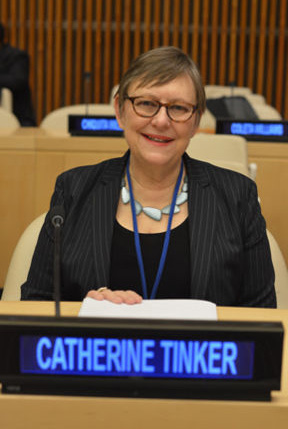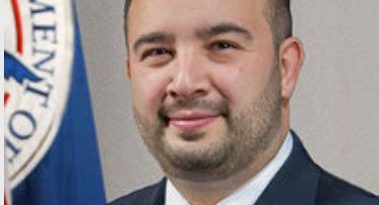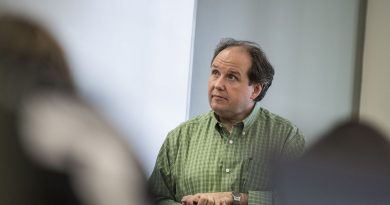Diplomacy Professor Involved in new UN Biodiversity Treaty
Luisa Chainferber
Senior Correspondent
On September 30, I had the opportunity to sit with Dr. Catherine Tinker, the brain behind part a new international treaty on Biodiversity Beyond National Jurisdiction (BBNJ), at the United Nations.
Dr. Tinker explained that the purpose of this new treaty is to fill the gaps present in the 1980 UN Convention on the Law of the Sea, which established rules concerning the use of the ocean and their resources. While this convention was an important step, Dr. Tinker emphasized that rules concerning biodiversity and property rights from research remained unclear. The BBNJ treaty aims to determine that all humankind shares the right to the sea’s biodiversity, that is, as it represents a universal good owned by all humans.
In order to reach negotiations, Dr. Tinker notes that many nongovernmental organizations and other parties engaged in dialogue with member states over the past several years. These organizations have facilitated the negotiations and are now observers at the Intergovernmental Conference sessions at the UN.
Concerning these negotiations, Dr. Tinker explained that the most important step for the potential BBNJ treaty is the completion of a text that could be sent to the UN General Assembly if member states manage to reach an agreement.
This treaty would be legally binding and would require more than one negotiating section in 2020. Dr. Tinker believes that the treaty would create “a new system of global governance for all aspects of life in the marine environment and human activities on the high seas,” and as such, the treaty will have a vast scope.
As an example of challenges ahead, Dr. Tinker stated that it is necessary to provide flexibility for scientific knowledge but also ensure that states meet the treaty objectives of conservation and sustainable use of the marine environment. Dr. Tinker asserted that any new treaty must consider the impact that climate change already imposes for marine biodiversity, in addition to promoting a solution to human activities that are harmful to marine biodiversity.
Dr. Tinker explained that a possible solution could include a public-private partnership that includes access to marine genetic resources and benefit-sharing (monetary and nonmonetary). She noted that these factors are one of the four parts of the metaphorical “package” countries currently negotiate. In fact, the intellectual property rights regime was a discussion topic at the UN Convention on Biological Diversity, meaning this convention could serve as a guideline for a new treaty concerning the marine environment.
Nonetheless, Dr. Tinker highlighted that it is too early to predict what will be the outcome of discussions because many are still in the early stages of negotiations.
Even with negotiations, Dr. Tinker still expects that member states will need to accept certain compromises. For example, she mentioned the need to balance the freedom of navigation and access to natural and mineral resources for economic development. Most importantly, she stated that it is important to ensure conversation. Countries must also decide who will be the decision-making authority, who will take on the possible role of a scientific body, who will initiate the transfer of marine technology, and who will back the financing.
To conclude our discussion, Dr. Tinker affirmed that the BBNJ treaty could open the door for future environmental discussions or treaties. Because the BBNJ treaty covers the sea surface to the deep seabed, Dr. Tinker emphasized that much of the territory covered by the treaty is yet to be explored and therefore only in the future it will become clear if the treaty is effective or not. Ultimately, she believes that the biggest challenge will be in making the BBNJ treaty strong enough to apply principles of international environmental law but also provide flexibility for scientific knowledge and new legal principles.




